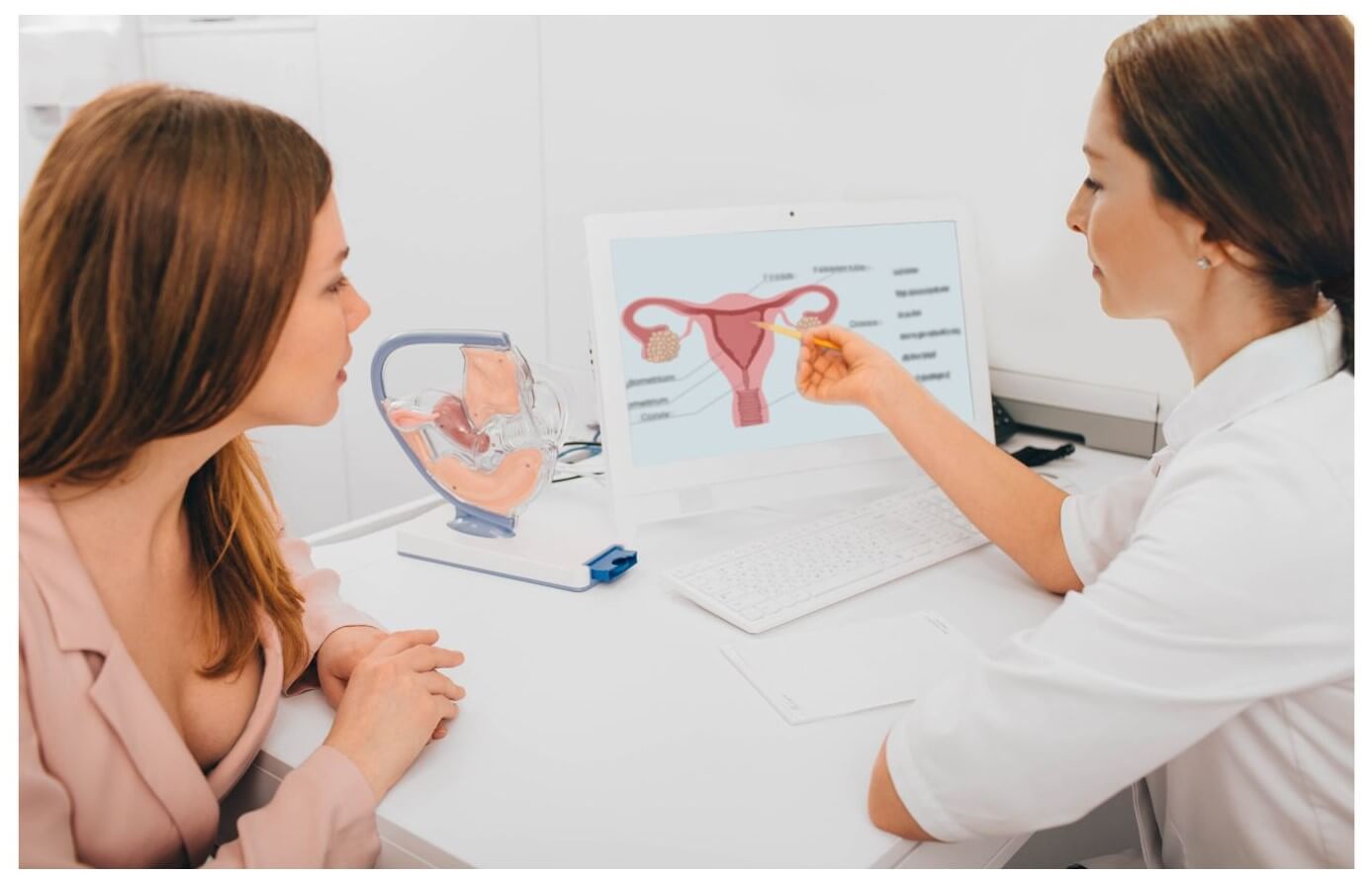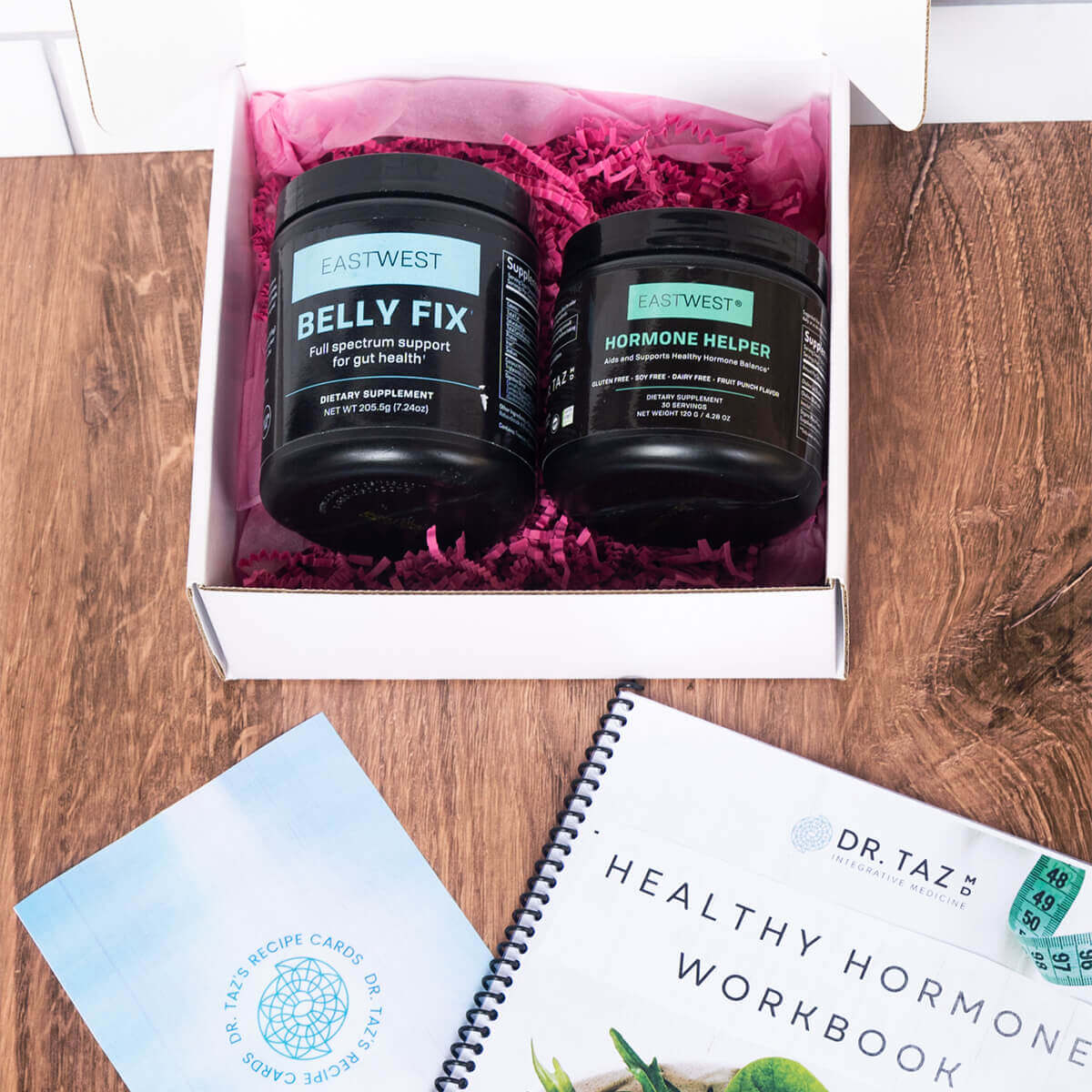Are you experiencing symptoms of menopause before the age of 40? Menopause itself can be a difficult challenge, but early or premature menopause can feel that much more overwhelming. Early and premature menopause can occur for women as early as their 30s or 40s, making it hard to cope with the unexpected physical and mental changes.
Natural menopause is a normal biological process for every woman, but certain health conditions or a family history may cause some women to go through menopause early. Let’s explore 5 common causes of early or premature menopause and how you can cope with the related physical and emotional challenges, including holistic remedies.
To heal the 5 bodies that control your hormones, learn more about my 12-week exclusive workshop, the 4-Hour Hormone System.
What’s early menopause?
Early menopause, or the stopping of ovarian function before age 45 years old, affects 5% to 10% of Western women. Going through menopause early is also associated with increased risk of serious health issues, including cardiovascular disease. The root causes of natural early menopause aren’t well understood, and most cases aren’t due to genetic factors or autoimmune issues (1).
The average age for the onset of menopause is 51 years old, but many women experience symptoms before that during a period called perimenopause. Perimenopause literally means “around menopause” and involves many of the same symptoms that occur during menopause—changing hormone levels, insomnia, irregular periods, and weight gain. For women who go through menopause early, they may also have reduced fertility as long as a decade before onset of menopause.

Early menopause usually refers to onset before age 45. Premature menopause or premature ovarian insufficiency occurs before age 40.
Learn more: Perimenopause Signs & Symptoms
How do you know you’re in menopause?
A woman is considered in menopause when they haven’t had a menstrual period for 12 months, or one year. The symptoms of early or premature menopause are much the same as with natural menopause, including hot flashes, weight gain, mood swings, and changes in libido.
Related: Is It Perimenopause or a Thyroid Problem?
What can trigger early menopause?
Anything that halts estrogen production or damages your ovaries such that they’re not able to produce hormones can put a woman in menopause. There are a number of things that can damage ovarian function and/or reduce estrogen production, including diet & lifestyle factors, medications, genetics, and autoimmunity. This also includes medical or surgical procedures like cancer treatments or endometriosis surgery which (in some cases) results in the removal of both ovaries.
5 Common Causes of Early Menopause

1. It’s hereditary
Genetics can influence the age at which menopause occurs in women. Certain genes have been linked to early menopause onset in particular families (2). A family history of early menopause can also increase your risk, especially if your mother or sister went through menopause before age 45.
2. You had your ovaries removed
If you have had your ovaries removed, they’re no longer producing hormones and you’ll experience early menopause. This occurs if you’ve undergone a surgical procedure to treat endometriosis, cancer, or other medical condition.
Cancer treatments such as chemotherapy and radiation can cause early menopause by damaging the reproductive system and stopping hormone production.
3. You’re highly stressed
High levels of stress cause hormonal fluctuations, especially if your stress is chronic or unrelenting. Stress hormones, like cortisol and adrenaline, have been known to disrupt normal hormone function and can even cause physiological symptoms like anxiety, insomnia, and irregular periods.
It’s thought that continual high levels of stress cause menopause-like symptoms, but stress does not actually induce menopause. One hypothesis for this is that high cortisol levels crowd out estrogen, leading the body to react in such a way that it thinks there’s not enough estrogen available (which is what happens during menopause).
Some studies do suggest that a high stress life makes it more likely you’ll go through menopause earlier, but the difference is small (3).
Read: The 2 Hormones You Need to Balance Before Perimenopause Hits
4. Autoimmune conditions
Conditions such as lupus and thyroid disease can impact hormone production, leading to early onset of menopausal symptoms including hot flashes, night sweats, and mood changes.
Some studies put autoimmune diseases as the cause of up to 60% of premature menopause cases (4). Women with autoimmune premature menopause are also at increased risk for other health conditions, including adrenal insufficiency, hypothyroidism, diabetes, and rheumatoid arthritis (5).

5. You’re lacking vital nutrients
There is evidence to suggest that the type of foods you eat—and the nutrients they do or don’t supply—affects when you’ll go through menopause. One study found that women whose diets were high in refined carbohydrates (like pasta, cereal, and bread) went through menopause earlier compared to those whose diets contained more fish, beans, and protein foods (1). Researchers also found that a higher intake of two nutrients, vitamin B6 and zinc, appeared to delay menopause
Lower levels of calcium and vitamin D in the diet may be linked to an earlier menopause (6).
Listen: How to Heal Menopause’s Worst Symptoms with Nutrition with Esther Blum
What to do if you suspect early menopause
If you have symptoms of menopause and you’re in your 30s or 40s, a holistic doctor can help you identify and address the root cause. In some cases, you may be truly going through early menopause naturally, or there may be another cause for your symptoms.
Working with a holistic doctor will help you learn about your hormonal changes over time, and how to proceed going forward.
A holistic doctor will likely test hormone levels, including estrogen, thyroid hormones, progesterone, DHEA, and cortisol.
Testing & diagnosing early menopause
A holistic doctor will most likely test:
- Estrogen or estradiol
- Follicle-stimulating hormone (FSH)
- Luteinizing hormone (LH)
Estrogen is the most important hormone for menstrual cycle regulation, while FSH helps support estrogen production. If FSH is high, it can be because the ovaries are producing less estrogen, and your body is making more FSH to try to correct this, indicating that you’re approaching menopause (7).
Normal FSH levels in adult women range from 4.7 to 21.5, with anything above 30 indicating the ovaries are decreasing their production of estrogen.
Other tests may also be recommended if you’re experiencing symptoms of early menopause, like thyroid-stimulating hormone (TSH). If you have an underactive thyroid (hypothyroidism), you’ll have TSH levels that are too high. Symptoms of a low or underactive thyroid can be similar to the symptoms of menopause.
How to cope with early menopause symptoms
First, it’s important to remember that menopause and perimenopause are a normal and natural biological process. It happens to every woman, and it’s not something to fear. However, if you’re experiencing symptoms early, there are a few things to consider:
- Diet
- Antioxidant consumption
- Stress
- Sleep
- Movement and exercise
- Relationships and community
If you’re going through premature or early menopause, it’s important to take good care of your physical health as well as manage any emotional changes that may occur. Here are a few holistic strategies for coping with the symptoms of early menopause.
Increase protein and healthy fats. Adequate protein and healthy fats like avocado, coconut, nuts & seeds, and ghee or butter is a great way to make sure your body has the raw materials necessary for hormone production.
Eat more cruciferous vegetables & fiber. A rainbow of vegetables, and cruciferous veggies like broccoli and cauliflower boost antioxidant capacity and promote estrogen detox, which gives harmful estrogen metabolites a safe pathway out of your body.
Maca for overall balance. Maca root has been shown in animal and human studies to stimulate the release of luteinizing hormone, which prompts hormone production in the ovaries (8).
You can find maca root, plus other hormone-balancing ingredients in Hormone Helper.
Stress reduction is a key factor to reduce menopause symptoms and help you cope with changes. High stress can wreak havoc on your hormones, your mood, and everything in between!
What to remember
Early menopause, perimenopause, and menopause symptoms shouldn’t be dismissed. Many patients end up repeatedly dismissed by doctors, believing they’re too young to be experiencing symptoms of menopause, or that it’s due to a mental health condition. With a thorough assessment, your doctor should help you identify the root cause of your hormone problems, getting you back on track to feeling better.
Resources
- https://www.ncbi.nlm.nih.gov/pmc/articles/PMC5860152/
- https://mefj.springeropen.com/articles/10.1186/s43043-021-00093-0
- https://www.ncbi.nlm.nih.gov/pmc/articles/PMC4666866/
- https://www.ncbi.nlm.nih.gov/pmc/articles/PMC3634232/
- https://pubmed.ncbi.nlm.nih.gov/9034788/
- https://jech.bmj.com/content/72/8/733
- https://www.mountsinai.org/health-library/tests/follicle-stimulating-hormone-fsh-blood-test
- https://www.hindawi.com/journals/ecam/2015/949036/



